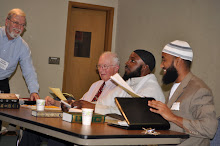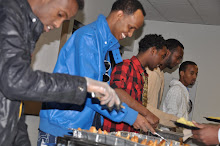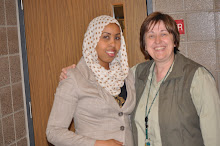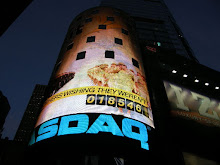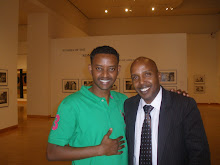Read Comments(34)Recommend(2)
We tend to believe that the United States is the best place to live. And of all of these United States, Minnesota is the best of the best. Collectively, we want opportunity and education, quality health care and transportation systems, as well as readily available police and fire protection.
So why can’t we agree on how to pay for these things that we all use? Our Legislature last week presented the state with a two-year budget that is balanced and fair. It taxes those who can afford it the most and includes cuts to spending where possible. Our governor says he will veto this bill and cut spending according to his own whim.
This no tax policy favors the rich at the expense of the rest of the state.
Gov. Tim Pawlenty spends much of his time with the top 2.5 percent (by income) of the population of Minnesota. Is this why his tax policy favors them? Is it because his experience is different from the majority of Minnesotans?
A friend invited me to a fundraising breakfast recently put on by the Great River Interfaith Partnership. This ecumenical, faith-based group has been effecting change in the Central Minnesota for nearly a decade.
I use the word ecumenical purposefully. Much like the word Catholic, it has meaning beyond that attributed to it by Christians. Ecumenism is truly a coming together of the world, if you will, beyond our own narrow understanding of that world.
To be ecumenical is to find the universal within us, to come together in one house, under one roof.
Even though GRIP is an ecumenical group, I also was struck by an uncomfortable combination of inclusiveness, diversity and separation in the room. An ecumenical group shouldn’t be like this, should it? What gives?
The room held representatives from most of the modern religious world. There were Christians of all stripes, including Catholic, Lutheran, Methodist, Evangelicals and others. There were also those professing other beliefs. Among these were several St. Cloud-area citizens from Somalia. Most of this population is Muslim.
(2 of 2)
In too many instances, adherents to particular religious philosophies sat with those with similar beliefs. I admit surprise. This room full of people attempting to create a world of opportunity where all citizens are cared for, educated and safe doesn’t always mix it up.
Remembering that Pawlenty, for instance, spends much of his time with leaders of the business world — the top 2.5 percent (by income) of the population of Minnesota — put this in some perspective.
This puts him in the middle of a world that believes that taxes are evil. It creates the illusion for him that the majority of Minnesotans support his perspective on taxes. So even when he fishes in the same lake as those of more modest means, he doesn’t necessarily hear their concerns about health care, education, transportation and protection.
Even though the room I was in the other day was not a model of full inclusion and togetherness, it was a model of people trying to create a better community. These were people willing to dig deep to bring about the change needed to build that community.
The people at the GRIP breakfast purposefully put themselves in a situation that helps them to see life from different perspectives. And they intently listened to story after story of those attempting to live the American dream.
One such story was told by Lul Hersi, a Somali elder. She told of the troubles of having to decide which of her children she would live with and which would live elsewhere. Our laws and the prevailing economy would not allow them to live together in affordable housing.
Pawlenty’s signing of the spending bill before him will not bring Lul Hersi’s family under one roof. It will, however, reflect the values of more Minnesotans than just the top 2.5 percent. But first he must purposefully see life from other perspectives.
This is the opinion of Ben Ament, a St. Cloud resident who hopes to leave the world slightly better than he found it. His column is published the fourth Friday of the month.
Thursday, May 28, 2009
Letter: No matter what faith, more prayer is needed
Read Comments(225)Recommend(4)
We read the May 12 letter "Suit hurts company, immigrants, freedoms" two times. It questioned whether Muslims should have paid time during work to pray. The letter offered some good ideas.
We, a Catholic and a Muslim, thank its author, who noted he came to this country and worked hard, enriching our culture with good German values.
We are glad he learned our language. We also speak a second language, Spanish and Somali, and know it helps us to understand other cultures.
We agree about the separation of church and state. We assume one would want the two institutions to help each other.
The letter questioned whether it is OK that Muslims pray during work on paid time. It is our experience that prayerful people seem to get more work done. Actually, we think we need more prayer, not only in the factory, but on the road, in the offices and in places of recreation, too.
The letter expressed displeasure about not putting up Christmas scenes by the post office. We support that view. Our culture is materialistic. We think we need more religious symbols — like Christmas scenes, the Ten Commandments, the cross, the crescent moon — in private and public places. We need all the help we can get!
Living in a culture that is pulling away from faith — and moving toward war, abortion and consumerism — we should not ask those who pray, "Why?" But rather those who don't, "Why not?"
Finally, that letter closed with "Immigrants must change and become proud Americans." We would state that immigrants and Americans must change and become faithful citizens.
Is that not what our country was founded on? Faith, hope and love — whether you are Christian, Jew, Muslim, etc.
We read the May 12 letter "Suit hurts company, immigrants, freedoms" two times. It questioned whether Muslims should have paid time during work to pray. The letter offered some good ideas.
We, a Catholic and a Muslim, thank its author, who noted he came to this country and worked hard, enriching our culture with good German values.
We are glad he learned our language. We also speak a second language, Spanish and Somali, and know it helps us to understand other cultures.
We agree about the separation of church and state. We assume one would want the two institutions to help each other.
The letter questioned whether it is OK that Muslims pray during work on paid time. It is our experience that prayerful people seem to get more work done. Actually, we think we need more prayer, not only in the factory, but on the road, in the offices and in places of recreation, too.
The letter expressed displeasure about not putting up Christmas scenes by the post office. We support that view. Our culture is materialistic. We think we need more religious symbols — like Christmas scenes, the Ten Commandments, the cross, the crescent moon — in private and public places. We need all the help we can get!
Living in a culture that is pulling away from faith — and moving toward war, abortion and consumerism — we should not ask those who pray, "Why?" But rather those who don't, "Why not?"
Finally, that letter closed with "Immigrants must change and become proud Americans." We would state that immigrants and Americans must change and become faithful citizens.
Is that not what our country was founded on? Faith, hope and love — whether you are Christian, Jew, Muslim, etc.
Subscribe to:
Comments (Atom)
